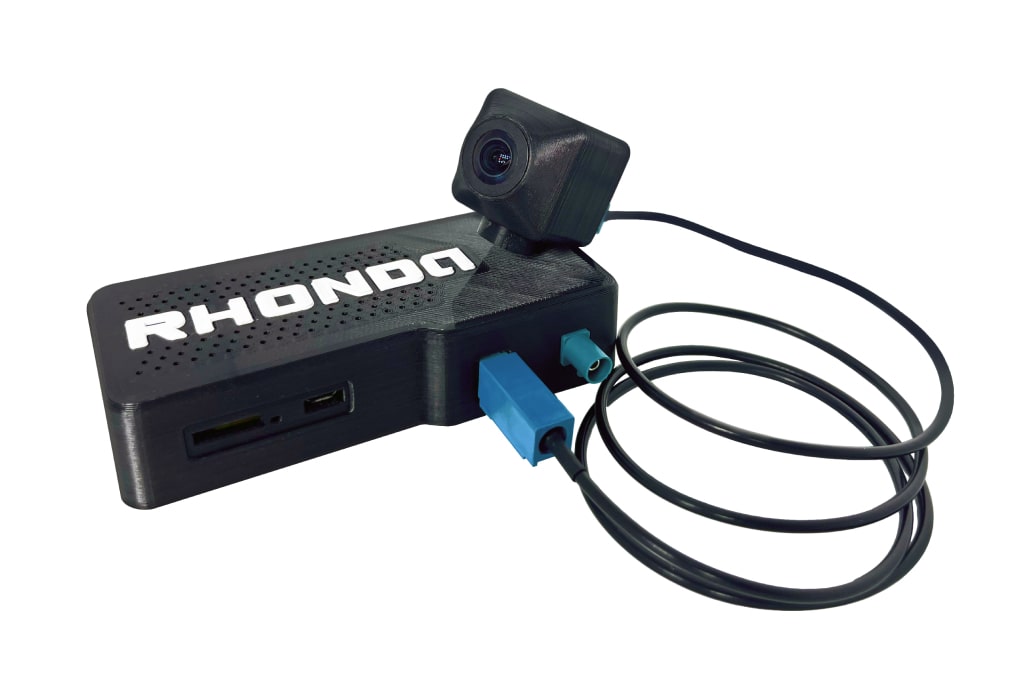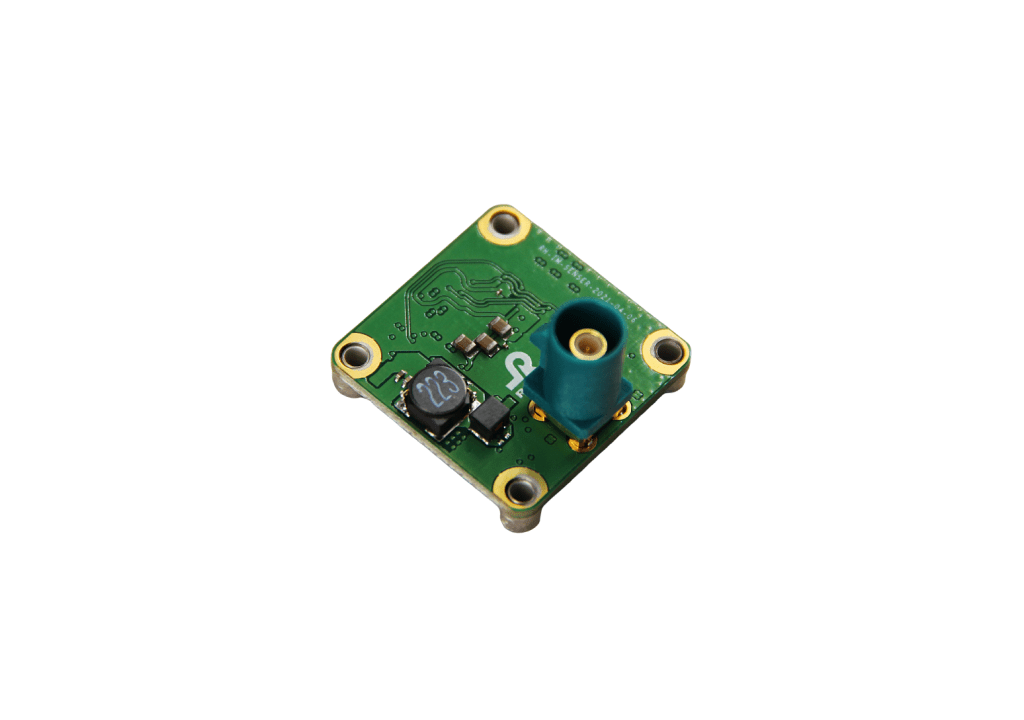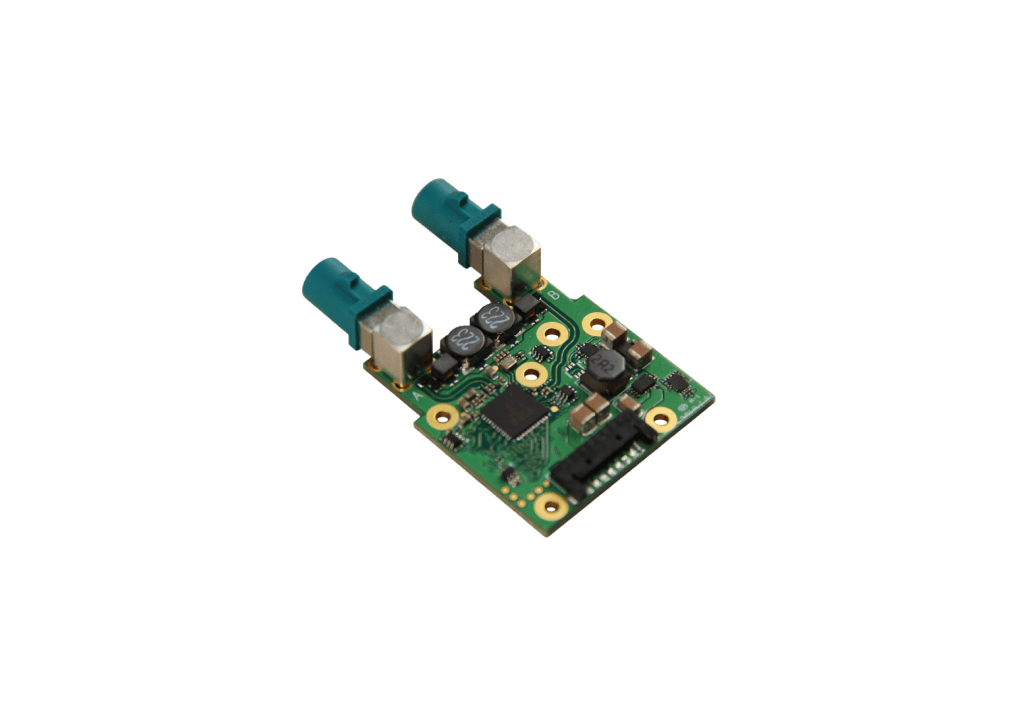With the growing demand for embedded vision, higher data transmission rates and integrated processes, Rhonda Software has released a GMSL2 Camera EVK to help accelerate time to market for custom camera development.
Standard image sensor interfaces (like MIPI CSI-2) have tight restrictions and allow placing SoC just in 10-15cm apart due to signal integrity requirements. High-speed digital signals are subject to issues like noise, distortion and loss over long distances. In case of image sensors, even short flex cable can cause significant signal quality degradation. Serializer/Deserializer (SerDes) solution from Analog Devices (former Maxim Integrated) helps to address signal integrity issues for complex camera designs, such as:
Camera sensors connected to an SoC, and that SoC has only one interface for connection
Camera sensors connected to an SoC, but located meters apart
Camera sensors and an SoC are located in different units
There is no place inside the camera housing for an SoC
Remote LCD connected to an SoC
Vertical applications such as automotive, robotics, medical, and beyond



Gigabit Multimedia Serial Link (GMSL) cameras respond to the need for high-speed data transmission at a decent distance. Analog Devices introduced the GMSL interface and SerDes technology to create an alternative to standard image sensor interfaces. It allows transporting multiple streams of unidirectional video along with the audio, control data and power over single coax or STP cable. The GMSL Serializer converts parallel data streams into serial data streams of a higher frequency. Then, the Deserializer converts the received serial data stream back into a parallel data stream.
Analog Devices GMSL2 Main Features
Bandwidth suitable for 4K @ 30 fps
Up to 15 meters of distance support via a single coax or STP cable
Almost zero-latency transmission of uncompressed data
Ability to multiplex additional metadata along with video
Provide enough power for the camera and additional equipment such as an IR projector
GMSL2 technology allows designing complex camera systems
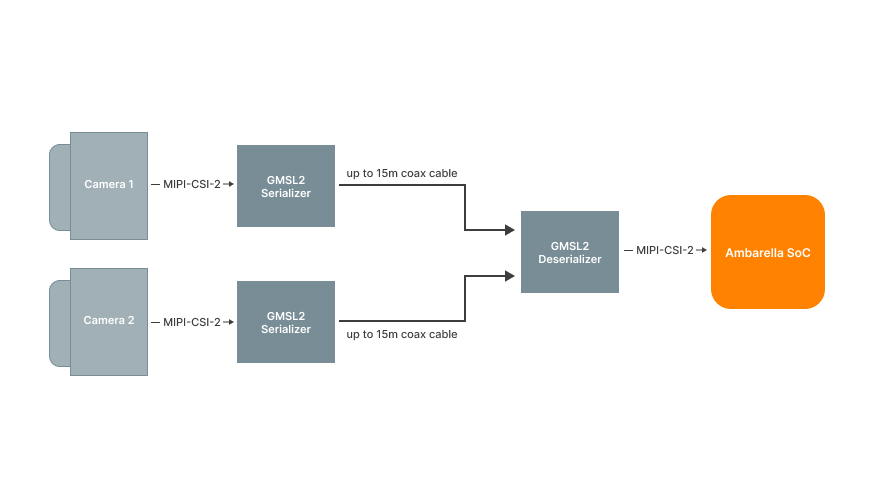
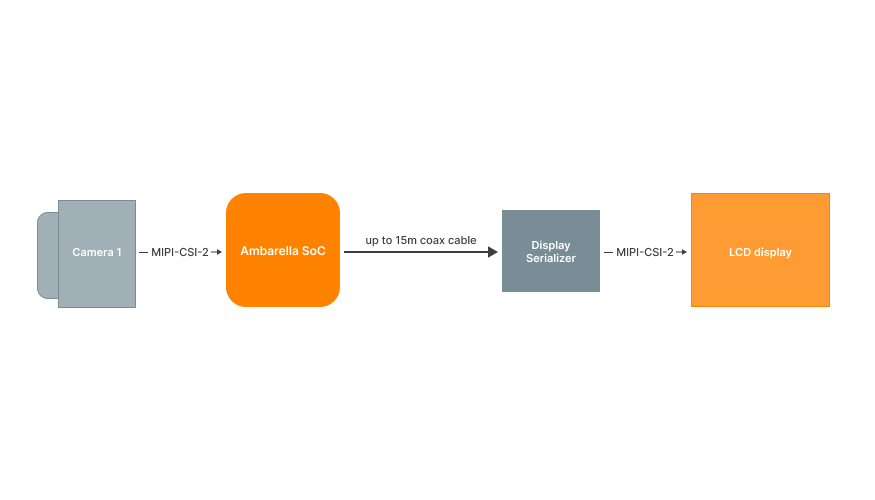
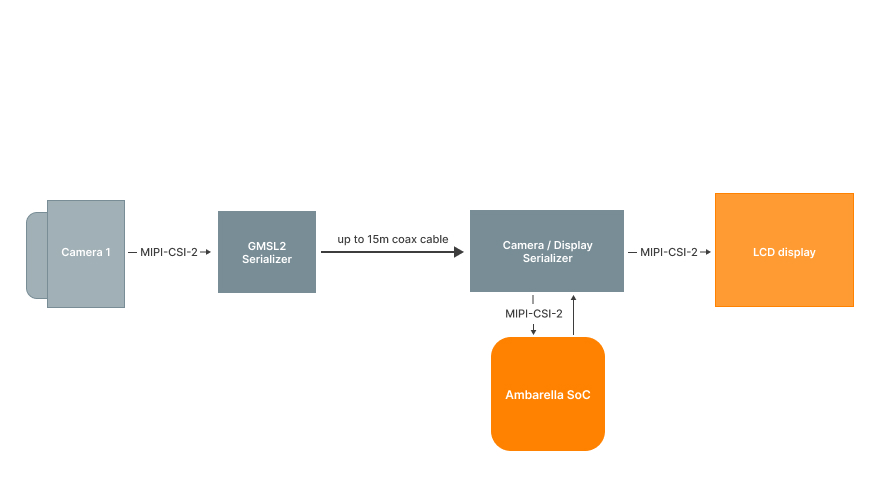
GMSL integration for custom camera designs
Designing solutions with a SerDes is challenging, requiring both Electronic Engineering and Software / Driver effort to ensure operational excellency.
Developing a SerDes camera design from scratch would most likely result in a longer project duration, impacting both the schedule and budget.
With decades of experience in imaging solutions, sensor driver development, and GMSL SerDes components, Rhonda Software is now offering off-the-shelf GMSL2 solutions that can be used with a flexible level of customization.
Rhonda Software provides an end-to-end solution for the evaluation of GMSL2 camera modules with the help of the Rhonda GMSL2 camera EVK. Customization is available, provided there is compatibility. Rhonda Software offers services from image sensor driver development to image quality tuning. Please reach out to discuss your specific customization requirements.
Rhonda GMSL2 Camera EVK features
End-to-end setup for video capture by a camera module, GMSL2 transmission, processing on SoC and output to host device
4K@30 H.264 encoded video streaming via UVC
Camera module is based on the Sony IMX577 optical module and GMSL2 serializer board
Compute module is based on the Rhonda H22 SoM and GMSL2 deserializer board
Up to 15m transmission distance via FAKRA-Z coaxial cable
Rhonda GMSL2 Camera EVK Demo
Ambarella SoC makes the Camera EVK extra special
If you've worked on Ambarella processors before then you might be familiar with the H22 Video SoC's unique architecture, that minimizes H22 power consumption while maximizing performance. If you are not familiar with it, then it is good to mention that Ambarella is an exclusive semiconductor manufacturer with a specialization in intelligent camera applications, offering a proven path to mass production. The Rhonda GMSL2 Camera EVK is available on the Ambarella H22 SoC / Rhonda H22 SoM.
Get in touch to evaluate your GMSL project scope
